Start your plan
Get started for free with one of Milanote's inspiring plan templates.
Start your planSign up for free with no time limit

Follow this step-by-step guide to learn the modern process of writing an effective marketing campaign plan in Milanote, a free tool used by top creatives.

Creating new ideas for a campaign can be exciting, but transforming these ideas into successful realities requires more than just creativity—it demands a solid plan.
This is where a campaign plan comes in handy. It serves to outline campaign objectives, track progress, and ensure everyone involved understands their roles in achieving the goals. It builds on the marketing brief, detailing the strategic and tactical steps required to execute the campaign.
Whether you’re launching a new product line or enhancing brand visibility through a marketing event, a campaign plan will guide your actions over a set timeframe, ensuring clear communication before the campaign kicks off. This level of planning is what makes a campaign truly effective.
In this guide, we’ll simplify the campaign planning process into eight straightforward steps. From outlining the campaign background to budgeting and creating a timeline, these steps will help ensure your campaign goals come to fruition.
Before diving into campaign tactics, it's essential to build a solid foundation for your strategy. Start by gathering key documents that will provide important insights and direction for your campaign. Think marketing brief, market research reports, past campaign analytics, and customer persona - these documents will be your compass as you navigate the campaign landscape.
Delve deeply into your target audience to understand their preferences, behaviors, and demographics. This understanding will empower you to craft messaging that resonates and select the most effective channels to reach them. From content creation to distribution strategies, this deep insight will shape every aspect of your campaign.
To organize your strategy planning, collect your important documents such as your marketing brief and customer personas all neatly within Milanote boards for easy reference and team collaboration every step of the way.
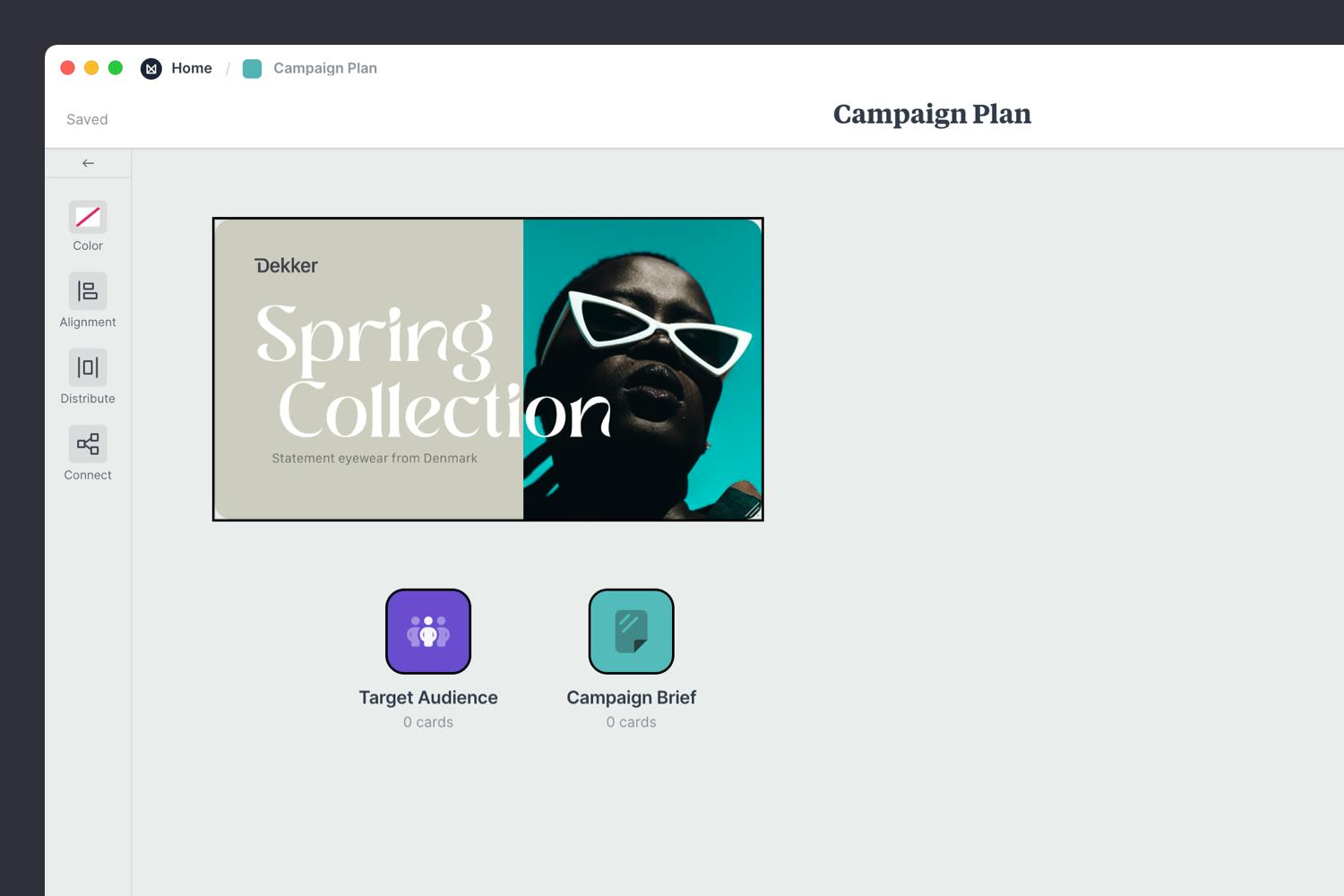
Create a new board for your campaign plan.
Drag a board out from the toolbar. Give it a name, then double click to open it.
Upload files and relevant background information.
Click the "Upload" button or just drag a file onto your board. You can add images, logos, documents, videos, audio and much more.
Every successful campaign is anchored on clearly defined goals. Whether it's boosting brand awareness, driving website traffic, or increasing sales, your objectives should be both aspirational and measurable.
Break these goals down into actionable deliverables. Specify targets such as sales figures, website traffic numbers, content assets, social media posts, and promotional materials.
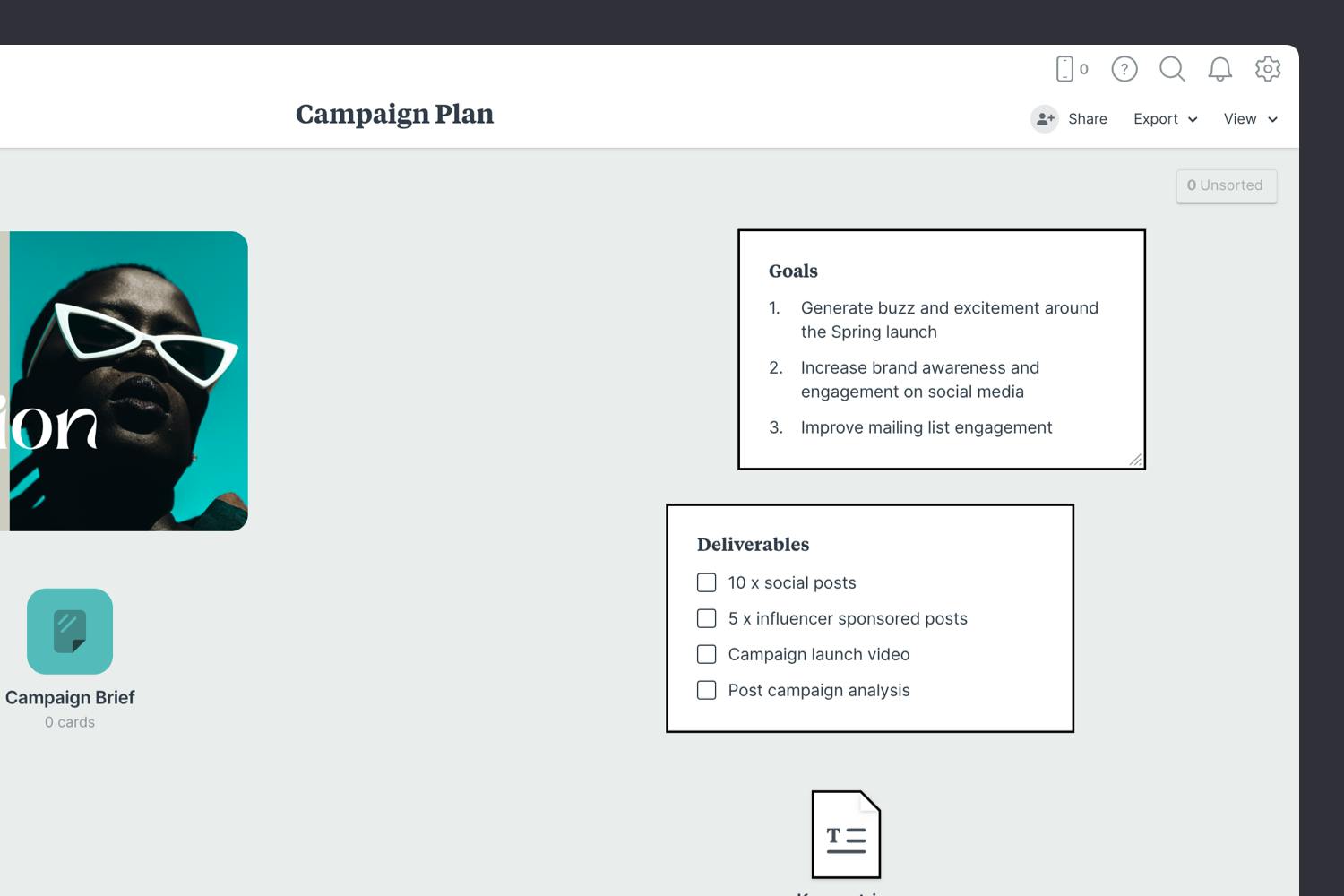
Add a note to describe the goals.
Start typing then use the formatting tools in the left hand toolbar.
Add a To-do list to outline the deliverables.
Start typing then press "Enter" to create a new item. Add a title to your to-do list using the left hand toolbar.
Now the goals are in place, it's time to determine a realistic budget for your marketing activities. Factor in expenses across the entire timeline of the campaign, from initial research through to campaign launch and evaluation.
Keep tabs on your budget and performance metrics with Milanote's tables card. When setting up your budgeting table, be sure to break down each campaign element. This approach allows you to allocate resources efficiently and monitor expenses closely throughout every stage of your campaign.
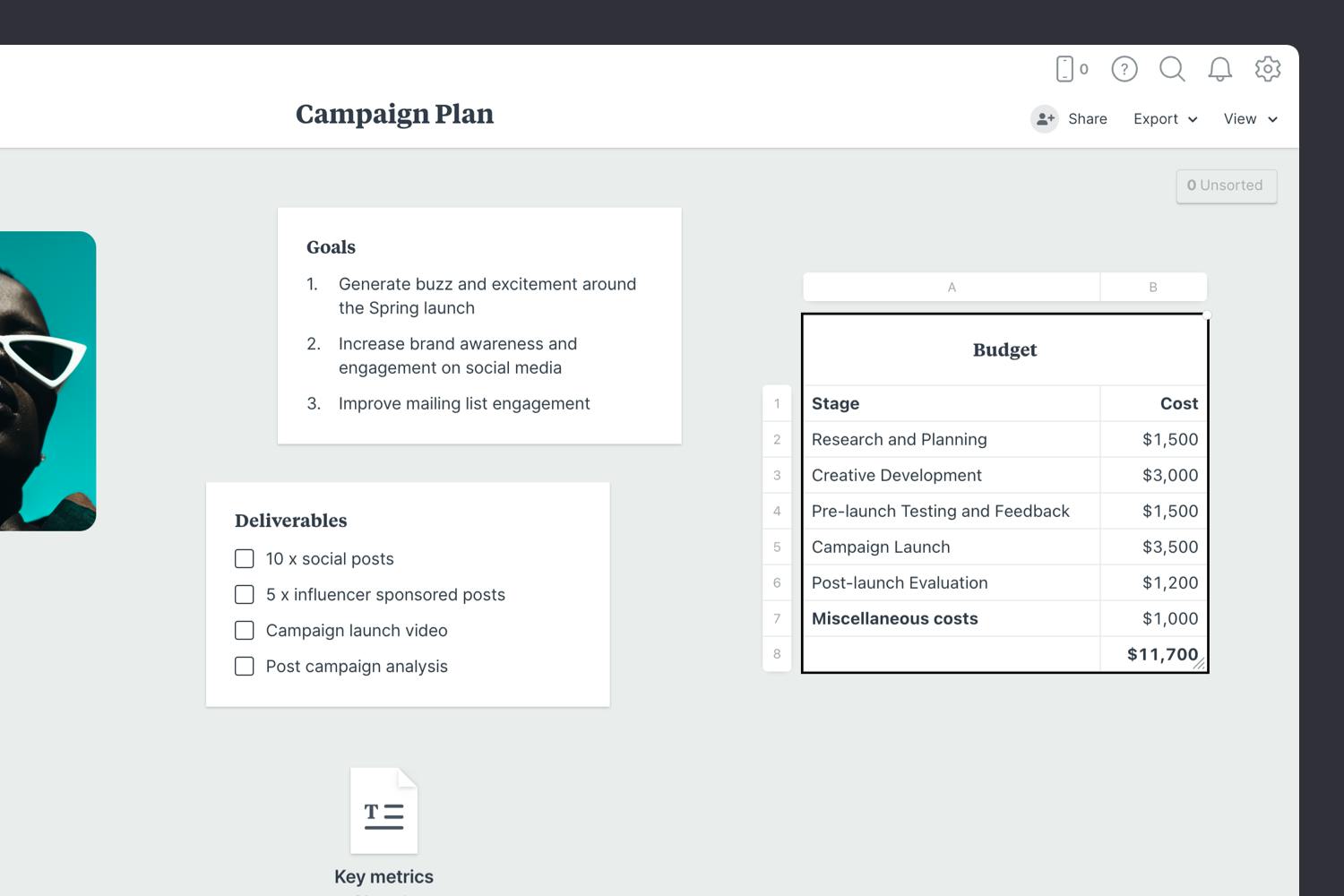
Use a table to map out your budget.
Create a table
Drag a table out from the toolbar. You can add simple formulas, dates, currencies and more.
No campaign plan is complete without a timeline. It's essential to map out the entire journey of your marketing campaign, from initial ideation to final evaluation. By breaking down tasks into manageable chunks and assigning clear deadlines, you ensure that everyone on the team stays focused and accountable throughout the process.
You can arrange this using Milanote's table card to outline the planning, execution, and evaluation stages. Assign team members to tasks and set dates to keep everyone on track.
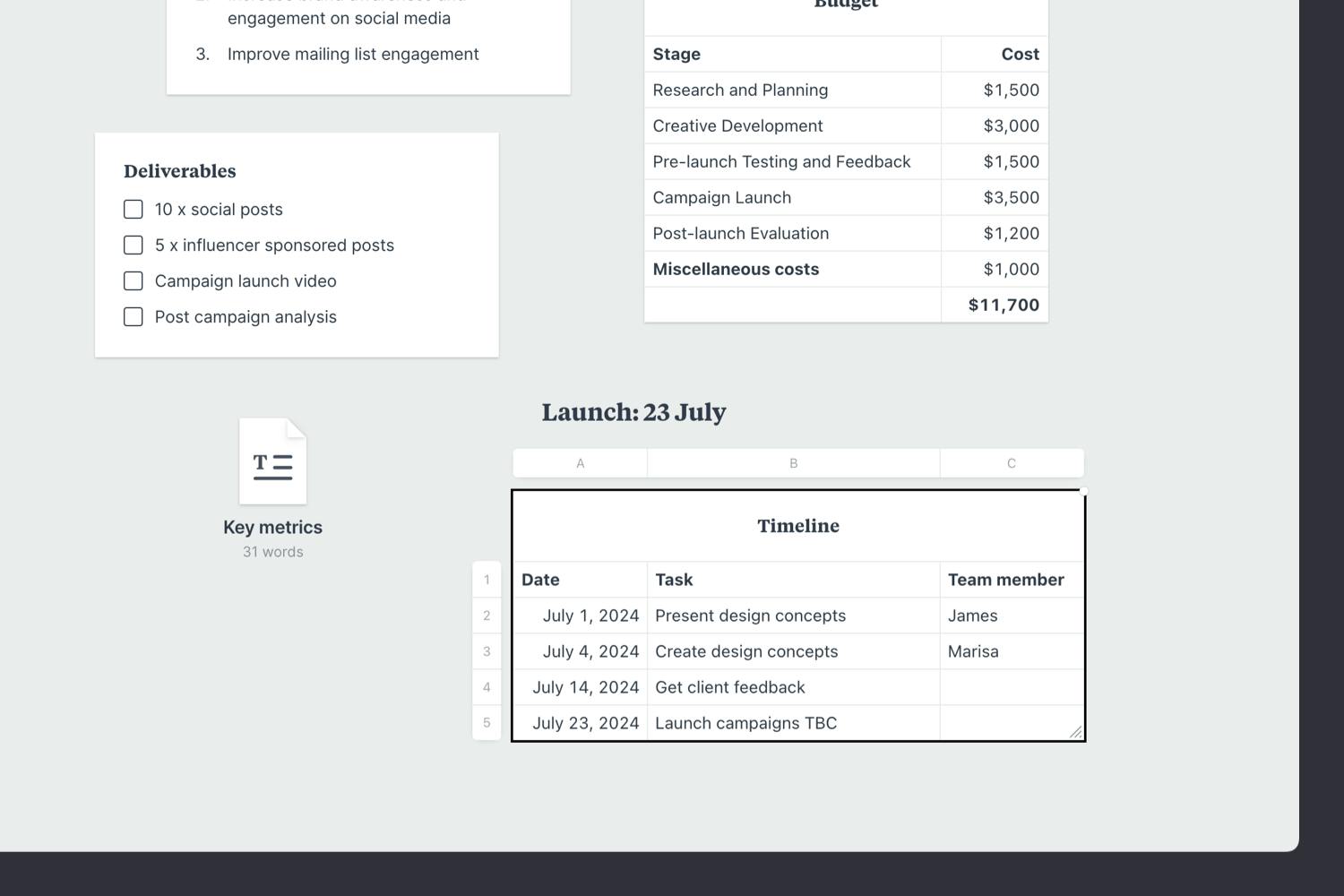
Use a table to plan your timeline.
Create a table
Drag a table out from the toolbar. You can add simple formulas, dates, currencies and more.
Now it's time to gather inspiration and ideas for your campaign content. Brainstorm concepts and explore visual themes aligned with the vision of your campaign goals and deliverables.
A moodboard is the perfect way to organize your references. Add images, video, links, notes and more to help bring your vision to life. Share your boards with team members to collaborate and organize creative assets.
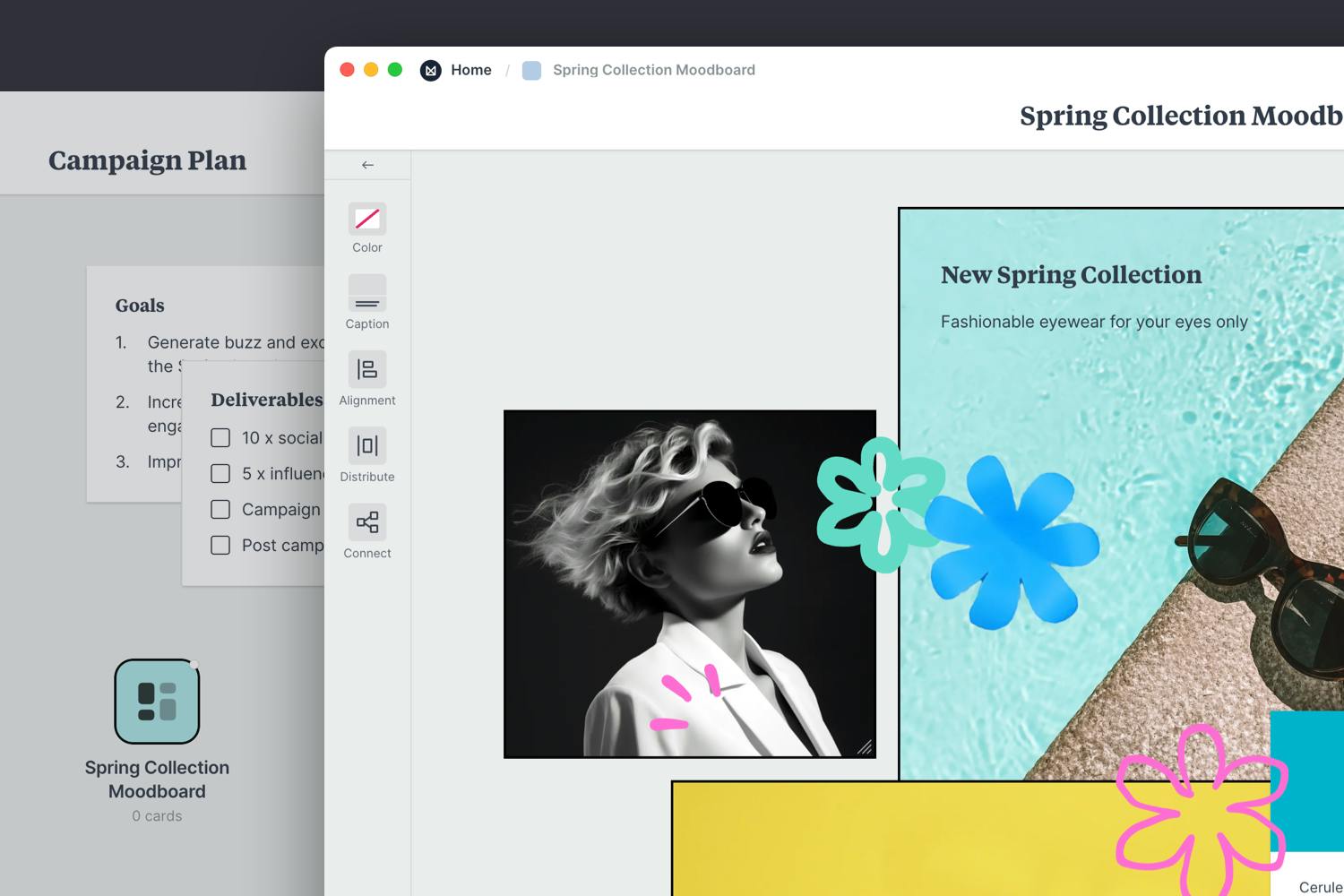
Create a new board for your moodboard.
Drag a board out from the toolbar. Give it a name, then double click to open it.
Find inspiration in the built-in image library.
Search over 3 million beautiful, free photos then drag images straight onto your board. Powered by Pexels.
Upload images and files
Click the "Upload" button or just drag a file onto your board. You can add images, logos, documents, videos, audio and much more.
Once you have everything you need, it's time to organize your content into logical topics. The goal here is to present the most important points in an inspiring and concise format.
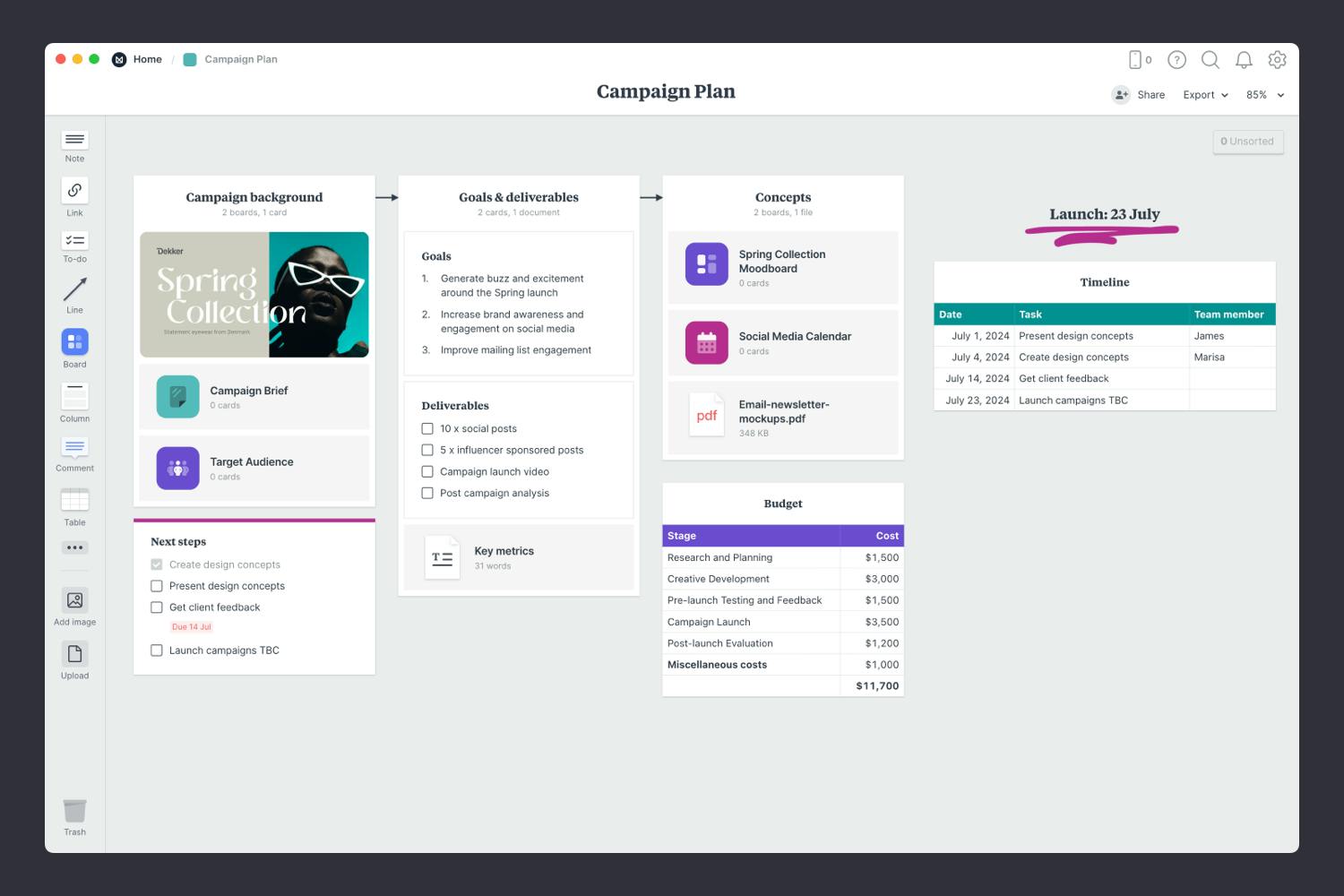
Use Columns to organize each part of your plan.
Name it, then drag any relevant notes, images or boards into your column to stay organized.
Before putting the finishing touches on your plan, take a moment to gather feedback from your team. This ensures everyone is aligned on the campaign's direction, goals, and deliverables. It's a great chance to collaborate, address any concerns, and fine-tune the plan before moving forward.
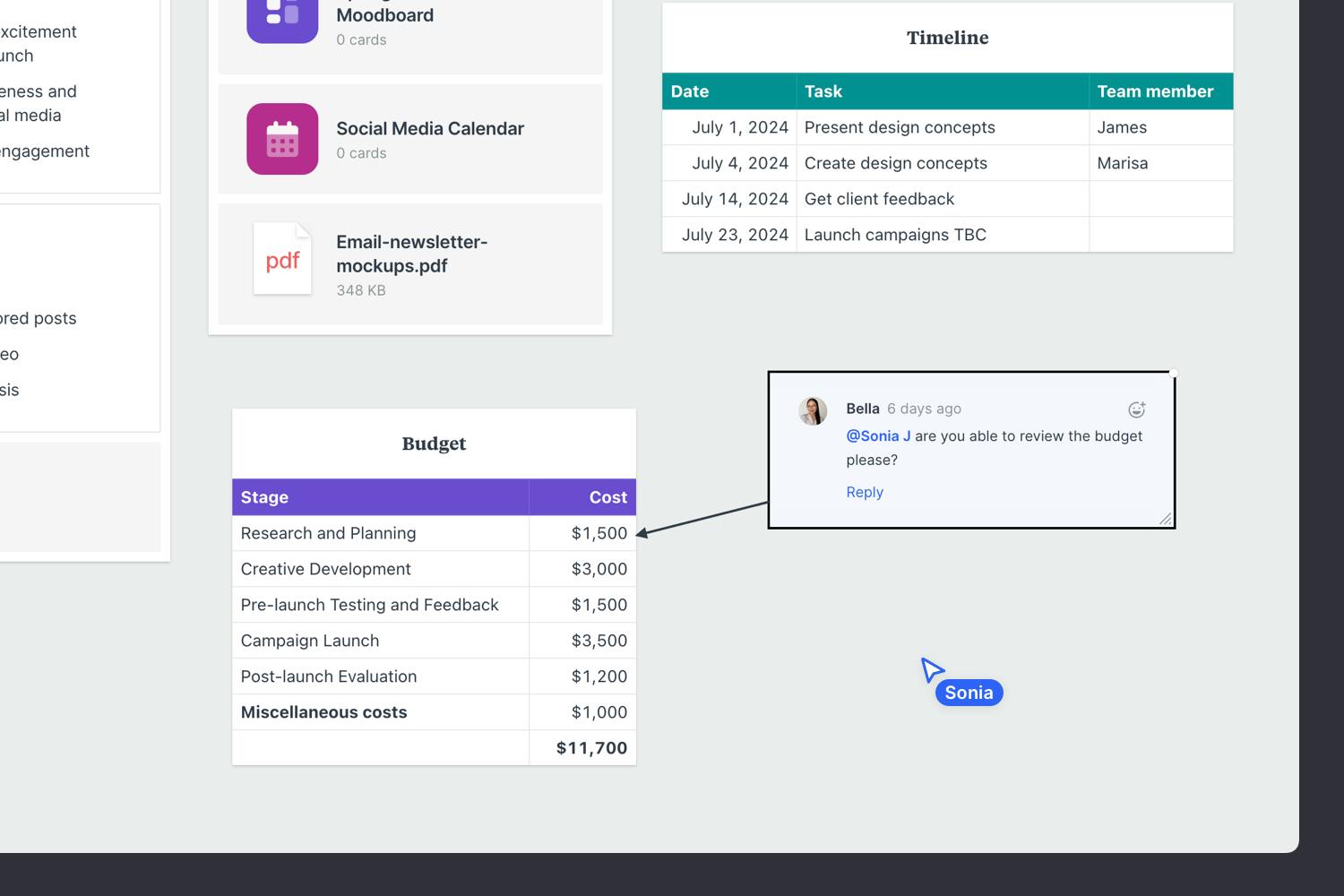
Invite a team member or client to provide feedback.
Open the "Share" menu from the title bar of your board. Add email addresses of the people you'd like to collaborate with—they'll receive an invitation via email.
Start a comment thread.
Drag out a comment from the toolbar on the left and place it on your board. Other editors can reply to your comment.
Mention teammates to get their attention.
Type '@' in any text field to mention someone who has access to your board. They'll receive a notification and be able to respond to your comment.
When gathering feedback, focus on specific, actionable insights rather than general comments. Use these insights to refine your project milestones and deadlines, ensuring they are realistic and achievable. Regularly revisit and adjust your plan based on ongoing feedback to maintain alignment with project goals and expectations.
Once you’ve made any final tweaks to the Campaign plan, it’s time to share the completed plan with the your team, organize a kickoff meeting and start the project.
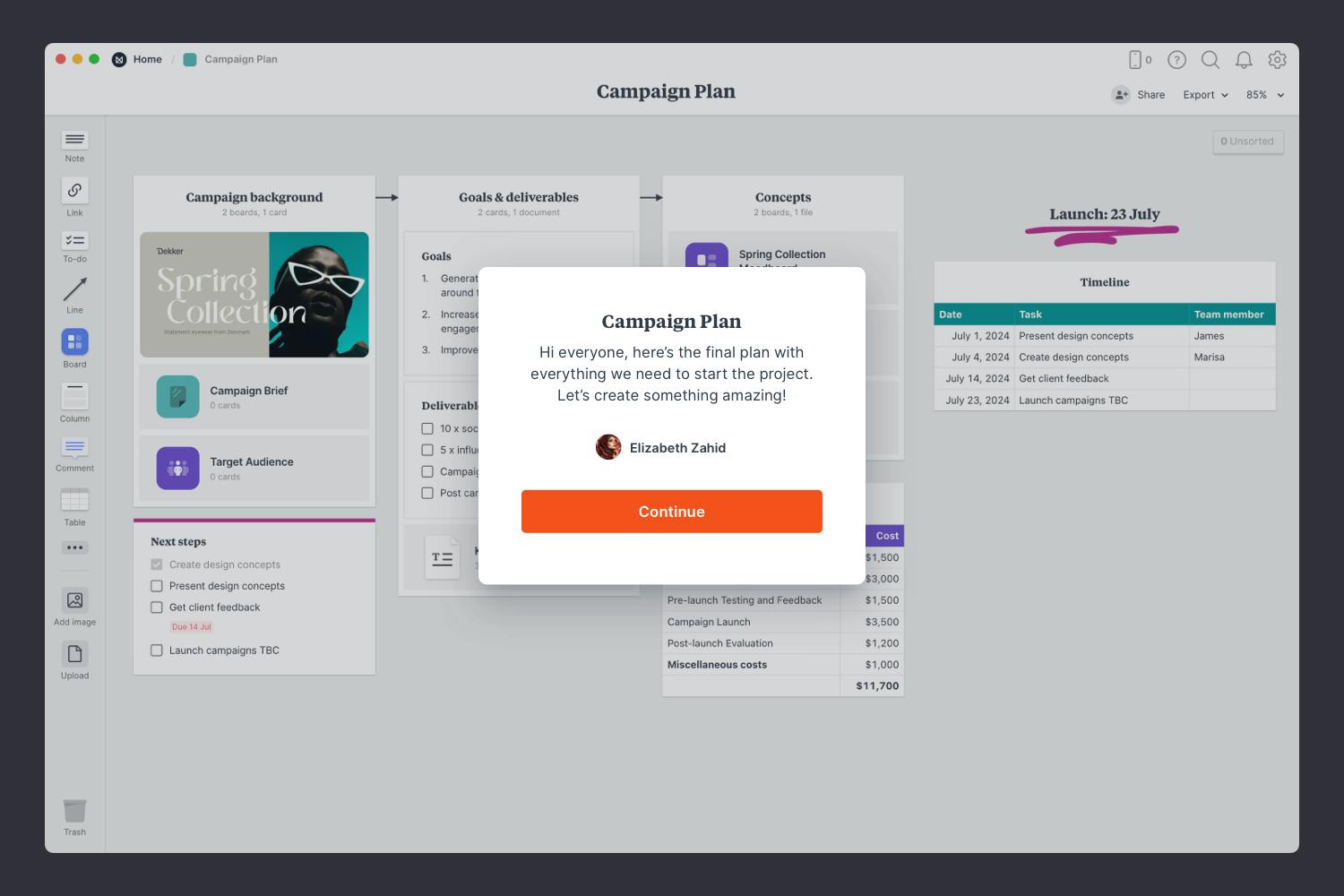
Share a link to the plan with your team.
Click Share in the top right of your board. You can add a Welcome message for viewers, allow comments, set a password or embed the board in another app or website.
Now that your campaign plan is complete, you have an inspiring starting point for your next creative project. Remember to revisit your plan at each stage of the project. It's a great way to ensure you're still headed in the right direction!
